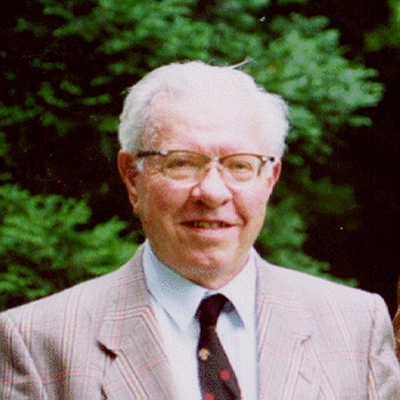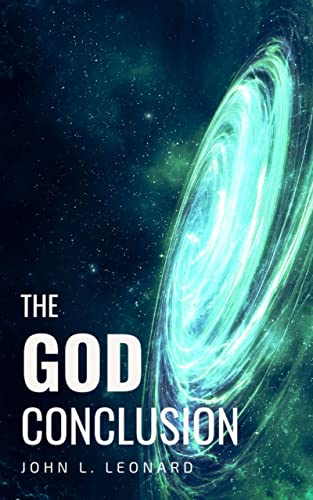We know the universe had an origin or a beginning. Science calls this singularity the “Big Bang” theory, a term originally coined by a very famous scientist (and atheist) named Fred Hoyle.

Hoyle was mocking the idea that our universe could have had an origin because at that time it was believed our universe was too complex to have had a beginning. The eternal or “steady state” universe was preferred by scientists and intellectuals because the universe with an origin required too much to explain. Hoyle had lots of company with him in agreement in their belief that the universe was eternal, including the atheist philosopher Bertrand Russell. Even very smart people are humans, and all humans make mistakes, both honestly and dishonestly.
However, after seeing the evidence for the Big Bang, Hoyle drastically changed his tune and said this:
“Some super-calculating intellect must have designed the properties of the carbon atom. Otherwise, the chance of my finding such an atom through the blind forces of nature would be utterly miniscule. A commonsense interpretation of the facts suggests that a super-intellect has monkeyed with physics, as well as chemistry and biology and that there are no blind forces worth speaking about in nature. The numbers one calculates from the facts seem to me so overwhelming as to put this conclusion almost beyond question.”
Hoyle, Fred, “The Universe: Past and Present Reflections. “Engineering and Science”, November 1981. pgs. 8–12.
I felt this quote by Dr. Hoyle was so important that I included it in my book The God Conclusion.
Some people (such as Roger Penrose, for example) believe the Big Bang occurred, but because we don’t know what might have existed prior to the Big Bang, they have speculated that what might have existed prior to the Big Bang was a previous universe that collapsed. The universe may have fundamental building materials which could have existed for eternity but continue to expand and collapse in cycles something like an accordion expanding and contracting in order to make sounds. This is a clever way of trying to avoid the problem of explaining where the material that formed our universe came from.
Despite the ongoing argument about what possibly could have existed prior to the Big Bang, there should be no argument about whether the atoms, stars, planets, and galaxies of this universe have always existed, because to the prevailing scientific theory well supported by copious amounts of evidence says they have not. The beginning or origin of our universe is almost perfectly described and confirmed by the scientific evidence that supports the Big Bang theory.
Of all the ridiculous, puerile comments made by Aron “Ra” Nelson in our videotaped online chat that inspired The God Conclusion podcast, surely the most absurd was the hateful insult he directed toward Fred Hoyle after I’d quoted the great scientist. Aron had the audacity to declare Dr. Hoyle was a “moron” after I repeated the quote cited above.
For more than an hour Aron tried to verbally intimidate me by talking over me, down to me, and belittling me without provoking me, but his hubris had finally gotten the best of me. When he openly challenged the intelligence of Dr. Hoyle, that proved to be the proverbial straw that broke the camel’s back. I shot back, “You aren’t even worthy of carrying Fred Hoyle’s jock strap.”
Perhaps I should feel regret that I resorted to such a crude expression to convey my meaning, but in the heat of the moment, I felt it was best to communicate with this individual using language he was certain to understand. When someone mud wrestles a pig, he will get dirty and the pig will have fun.

And while I believe Aron did finally get my point, I realize that I’ve started to drift a little off-topic. The point of this article was not to complain about my conversation with Aron; that conversation is ancient history. Now please allow me get back on point by saying this: we know this universe had an origin.
We can safely say there are only two possibilities when it comes to the origin of the universe: it was either planned or unplanned. It was either directed or undirected. There are no viable third options.
The unplanned universe, which is the universe preferred by atheists, is defined by chaos because there is no superseding form of intelligence responsible for causing the Big Bang. There is no reason that inorganic matter would mutate to the point of becoming a living organism. It just happened. The obvious problem with this hypothesis is the sheer improbability involved. Scientists have calculated the probability of the fine-tuned Big Bang and suggested that an infinitesimally small fraction of a single percentage point is the probability that our specific universe would be produced by the Big Bang.
And that’s only in regard to the probability of a successful Big Bang. There is also another separate probability value associated with cosmic inflation, which immediately followed the Big Bang. Then there is a probability associated with abiogenesis, the origin of life, which some scientists have suggested was literally zero, but zero (and one hundred percent) represent absolute states (irrefutable knowledge) at either extreme end of a probability scale, and done properly, science never allows for proof to exist. Any theory, no matter how well supported by evidence or how long the theory has withstood the test of time, can be falsified according to the scientific method if evidence should ever be produced that contradicts that prevailing theory.
In theory, even the theory of gravity could one day be debunked by new evidence that contradicts the existing theory somehow and causes it to either be modified or disregarded.
Even though the Big Bang theory is very well supported, it presents a monstrous problem for atheism because it appears to describe precise creation that atheists would like to believe is possible without divine intervention. Atheists have been left to ponder how nothing could have caused the unplanned universe to come into existence with supernatural timing and precision. Theists simply give thanks to their Creator for creating them and our carefully planned universe, and for the world in which we live.
The biggest problem with Darwin’s theory of evolution is that it is supposedly the end result after a very long string of undirected but spectacular coincidences: the belief that the Big Bang would produce a universe with the perfect combination and percentages of chemical elements that happened to eventually produce a rich diversity of complex life we can observe today…but first this newly formed universe had to rapidly expand for a precise length of time that began immediately following the Big Bang, again for no explicable reason. And a long series of unplanned and uncoordinated chemical reactions led to a complex living organism forming out of inanimate matter. Once again for no discernible reason, this relatively simple organism diversified into far more complex organisms and eventually became life today, by a long series of slow mutations that occur over time.
Evolution as a theory becomes much less plausible once you realize it is virtually impossible to get to the point where it could ever become possible in the first place. Why do I say that? Well, to explain let me try to put the kind of luck necessary for the unplanned universe into context.
Imagine going to Las Vegas. You walk into a casino and step up to the nearest poker table. The dealer deals you five cards. You look at your hand and see a royal flush, the ace through ten of diamonds and cannot believe your good luck. Is it theoretically possible? Yes, of course, but it is also extremely unlikely. The odds against drawing a royal flush are 649, 739 to 1. In other words, with every 649, 739 poker hands you play, there is a possibility of drawing a royal flush. Expressed in decimal form, the probability against successfully drawing a royal flush is 0.000154 percent. It can happen, but the odds are very unlikely that it will happen again anytime soon.
However, the dealer gives you five new cards, and once again, you have another royal flush without even having to draw another card. How can this be possible? Yes, it is theoretically possible, but it is extraordinarily unlikely. One might even say it is virtually impossible, because the chance of success is 0.000154 x 0.000154, or .000000023716. Two royal flushes in a row. You go all in, but the bet has changed. Now you need to draw another royal flush in order to win.
Cutting to the chase and using the same math, the odds against drawing a third consecutive royal flush is now 0.000000000003652. The odds against drawing a fourth consecutive royal flush will be 0.000000000000000056245, and so forth. The odds against success might be extremely low for one single hand of poker, but they get not only progressively but exponentially worse for every following hand, especially when the success of the current hand completely depends on the success of the previous hand. Sooner or later (and probably sooner in this particular scenario) you’ll run out of luck.
According to the scientific evidence and conclusions of the experts, our universe is fine-tuned, meaning there are certain factors or variables involved in the creation of the universe where if any of them even slightly changed, the universe would have failed to exist in its current form. According to Sir Martin Rees, there are six of these cosmological factors associated with the Big Bang that sort of represent a recipe for creating our universe, loosely speaking. Allegedly, if any of these six cosmological factors were changed even in the slightest, our universe would cease to exist. These factors include the amount of matter in the universe, the number of physical dimensions, the strength of the electrical forces that bind atoms together, plus three more.
Using our same royal flush analogy to represent the improbability of one cosmological factor being fine-tuned (the true improbability is probably even worse), we would need to draw six royal flushes in a row in order to approximate the odds of a fine-tuned universe being produced by the Big Bang. The improbability will never be zero, but by the time the improbability of all six cosmological factors have been calculated, it should be painfully obvious that you’d never want to bet on a fine-tuned universe coming to exist due to sheer luck.
Nobody is so lucky they could draw six royal flushes in a row in an honest card game. If the deck was rigged, sure. But if the dealer is honest and the cards are shuffled properly, six consecutive perfect hands of poker are statistically impossible, if not literally impossible. And the problem doesn’t even end there; it is just beginning.
You multiply .000154 by itself six times to come up with an overall probability of the Big Bang. Next you must take the problem of cosmic inflation and its improbability into consideration, which must be multiplied against the odds against the Big Bang for a running total that only continues to get worse. The odds against success can never improve.
Continuing with this train of thought, the odds against abiogenesis must be multiplied against the odds against the Big Bang and the odds against cosmic inflation to maintain our running total. The odds against an unplanned but fine-tuned universe were virtually zero to begin with, and only got worse with time as the improbabilities compounded.
By the time we finally get to the point where we’re ready to take Darwin seriously, the argument has already ended, if logic ever got involved. Even if the far more generous numbers used in this article were more accurate, the Big Bang would still remain extremely unlikely, and cosmic inflation would still depend on its success, and the improbabilities would still compound because the unplanned universe has no explanation for the exquisite timing involved.
The mathematics simply do not support an unplanned and undirected universe. Everything must serve some purpose, or nothing can have a purpose. There is no compromise between those two alternatives. All the evidence suggests there is a grand plan for life, the universe, and everything. There is little or no evidence that any luck has been involved.
I simply don’t have enough faith to be an atheist.


I’d like to suggest you interview someone that is an astrophysicist, an agnostic, and a gentleman: Neil deGrasse Tyson. Now here is someone that really knows what he is talking about. I’m sure he would not behave the way Mr. Ra did. What do you think?
(I’m sure he is probably pretty busy, so he may be difficult to book.)
Regards,
Roy Owings
I’m game if Mr. Tyson has any interest whatsoever.